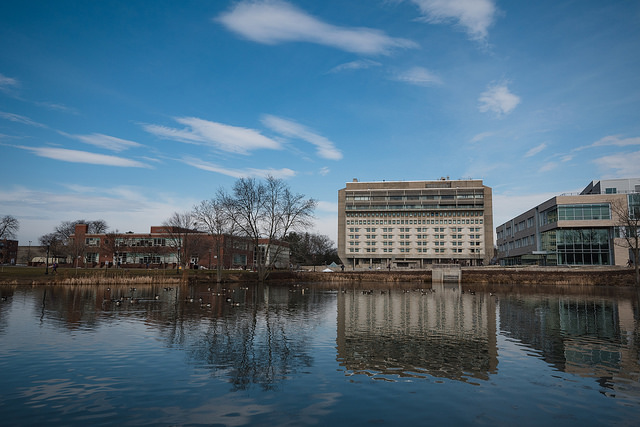Jayati Ghosh, professor of economics at the Centre for Economic Studies and Planning at Jawaharlal Nehru University in New Delhi, gave a talk on economics last Friday at the University of Massachusetts.
Ghosh is a founder of the Economic Research Foundation in New Delhi and her work focuses on gender and development economics, globalization and macroeconomic policy, amongst other areas of interest.
In her speech, titled “Time Poverty and the Poverty of Economics,” Ghosh discussed global economics, specifically focusing on comparative purchasing power in different countries.
“Today when looking at international comparisons, or income inequality, or wage inequality, the first thing that comes to mind is ‘PPP.’ Purchasing power parity,” Ghosh said. “PPP doesn’t really capture the fact that purchasing power parity varies depending on which country you’re in. You can buy a lot more with 65 rupees in India than you can with one U.S. dollar here, which is the equivalent to 65 rupees.
“The driving factor of this is that lower income countries typically have lower prices for goods and services, and that is what gives your currency greater purchasing power,” she added.
Ghosh went on to explain how the concept of PPP has become an assessment for income in countries around the world, which Ghosh feels is very problematic.
“This all started in the early 1980s when the International Comparison Program was created, setting standards used for everything. It is absolutely now considered the base for how we asses income across countries,” Ghosh said. “I would agree that there is a lot of problems with this, some of the most obvious ones being the U.S. is the reference country, and that’s a problem because there’s an entire presumption that all income is made in the same structure and made in the same way.”
Ghosh also argued PPP may not always provide a clear picture depending on the year chosen as a base year.
“The PPP is highly dependent on the choice of a base year and the subsequent reference years, which presents the problem of how you choose the representative aggregate. Purchasing power exchange rate is much higher than market power exchange rate in certain countries, sometimes up to four times higher. A very large portion of people in India are getting low wages, and therefore they are providing goods and services at very low prices – meaning that a low currency economy is a low wage economy,” Ghosh said.
Pedro De Almeida, who in his second year of the economics graduate program at UMass, discussed his excitement for the talk and why he came.
“I’m really interested in feminist economics, and as a grad student in the department, I felt really excited to get the opportunity to hear this lecture,” De Almeida said.
The event was co-sponsored by the PERI Program on Gender and Care Work and the Department of Economics’ Political Economy Workshop.
Thakshala Tissera, a graduate student in the English department at UMass, explained what she felt she got out of the talk.
“I think it was fascinating learning about different factors which affect GDP growth and rates determining output,” Tissera said. “I also feel like after this lecture, I’m going to be skeptical when reading articles which talk about GDP and output, as now it’s easy to see how easily these numbers can be exaggerated or underemphasized.”
Jacqueline Hayes can be reached at [email protected].



















